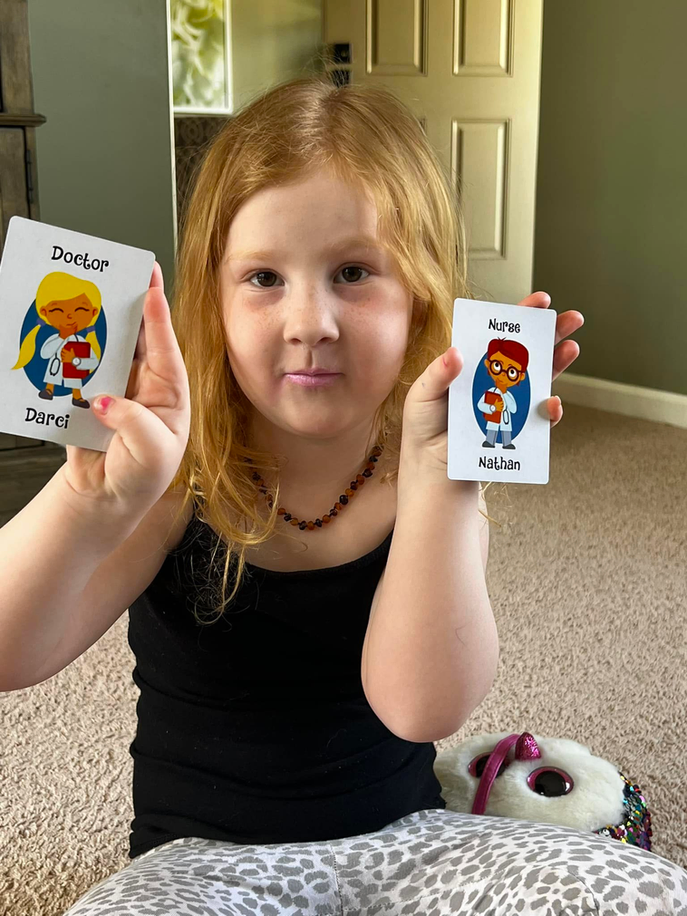I am both. I am a family nurse practitioner, as well as a certified nurse-midwife. I have also earned my clinical doctorate in nursing practice. This is not a PhD. My doctorate degree was specific to my clinical expertise, similar to your dentist, your podiatrist, your chiropractor, your audiologist, and even your veterinarian. Each of these doctors also use the title doctor, which is not synonymous with physician. I am a nurse. A physician is a physician. A dentist is a dentist and they practice dentistry, just as a chiropractor practices chiropractics.
Each have earned a terminal degree, giving them the title doctor. Professors have also earned the terminal degree, which may be clinical or it may be researched based, hence the PhD. Attorneys also have a doctoral degree, the Juris Doctor. Why do we not call them doctor, because they do not have a clinical doctorate; however, the nursing doctor does, just as her fellow clinical doctorally educated colleagues. Either way, if you have earned a terminal degree, you have earned the title of a doctor. I have every legal right to use and be called "doctor" as any other person who has earned their doctorate degree (except nurses in California who have been oppressed from doing so by their physician colleagues).
What is a bit intriguing to me is that typically, the only person who has any concern over my use of this title, and any other nurse who does the same after earning their own doctorate, is the physician who for whatever reason feels threatened by this. Not always is this true of course. Many are very supportive and certainly, clients in my own practice who are physicians respectfully call me Dr. Lane although I certainly don't have that expectation of them.
It causes me to question however, if those who have such issue with this title because they claim it will confuse consumers and causes me to appear as if I am misrepresenting myself, potentially, don't recognize that consumers can be educated and think for themselves. We teach clients how to manage very complicated insulin regimens and so many self-educate themselves on their various dis-eases that they come into their visits and challenge our own knowledge! We can educate consumers about nurses now also pursuing doctoral degrees, and this isn't in effort to assume a title similar to their physician colleagues, as nurses have already gained a higher level of trust and respect from consumers, but because we are working to advance our own profession. Never have I heard a healthcare consumer share that they called their vetrinarian's office and because the receptionist answered the phone, "Dr. Tail's office. Can I help you?" They made the assumption they could get their pap testing done with this particular doctor. Consumers are well aware there are a variety of doctors and they each have their own specialty, and none can assume responsibility for all the needs presenting in healthcare.
Nurses are empathetic, compassionate, we care about our client's experiences and well-being. That is the science we seek to advance. Physicians are much more disease focused, more concerned with cell pathology and disease processes - which is so incredibly important and for which I am grateful so I can refer. Certainly, each profession overlaps the other to some degree, but we are distinct, and separate professions both dependent or complementary to the other.
I am a nurse. I am a doctor. I am a family nurse practitioner. I am also a certified nurse-midwife. I am a professor. I am a yoga instructor and I am a mother. I am on a journey to educate and encourage others to identify their needs and to honor those. My journey is not about ego; it's about giving it my best, all the time, and working towards my doctorate was part of that effort. It was my favorite academic achievement. While I don't have any expectation that my clients call me doctor, in fact, most all call me Penny, I have earned the title.


There is controversy surrounding nurses having earned their doctorate degree and using the title doctor. There is fear that consumers will become confused and be led astray thinking they are under the care of a physician. Ultimately, I find this very condescending to both healthcare consumers and advance practice nurses who are also doctors. We teach clients how to manage complicated diseases. We trust them to administer insulin which can be deadly if performed incorrectly. We trust them to care for their child with hemophilia or severe respiratory disease. We teach clients how to manage advanced wounds and various disabilities, but we can't trust them to understand that the title doctor refers to the level of academic achievement and not the doctor's specific profession? Are consumers making appointments with dentists or veterinarians and confused in their consults when they are told the doctor isn't capable of addressing their nausea because the office staff referred to the clinician as a doctor? Is the issue that consumers may discover that when it comes to primary care, the nurse practitioner's scope of practice is very similar to that of a primary care physician but the nurse practitioner spends more time listening, teaching, and educating and ultimately has higher user satisfaction? The real issue here is competition. Consumers can be educated.